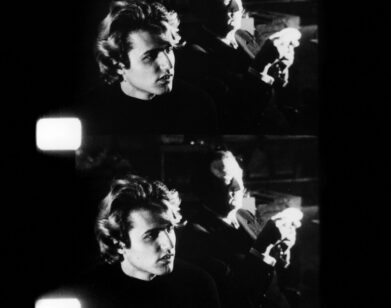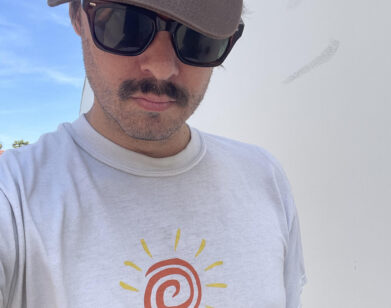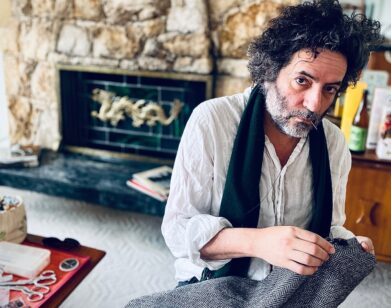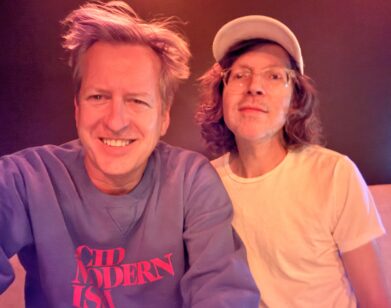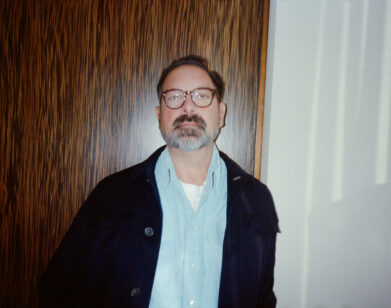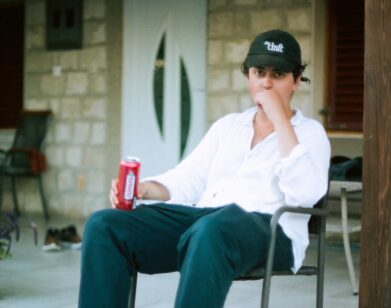Ask a Sane Person: Naomi Klein Is Not Ready to Give Up the Fight
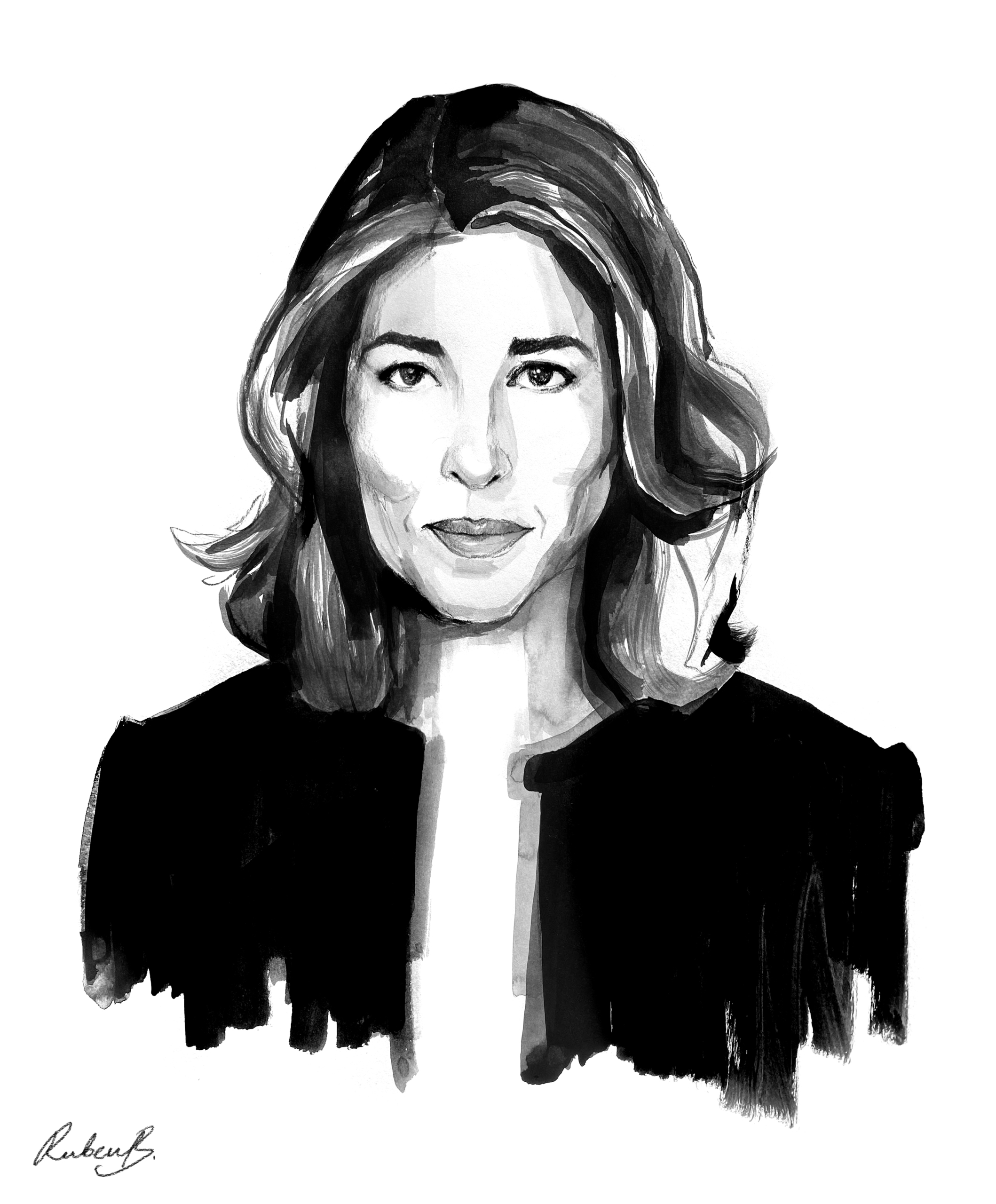
The writer, activist, and political thinker Naomi Klein has vitalized discourse in arenas ranging from climate justice to women’s rights. Klein’s views on social justice and solidarity are particularly resonant in times of crisis—which is pretty much the default state of the world, even before the onset of COVID-19. Check out her latest projects on naomiklein.org.
INTERVIEW: Where are you and how long have you been isolating?
NAOMI KLEIN: I’m in Central Jersey (bit of a COVID hotspot). I’ve been isolating with my husband Avi and our 7-year-old son since March 12. And we’ve been hardcore: no friends, no takeout.
INTERVIEW: What has this pandemic confirmed or reinforced about your view of society?
KLEIN: That humans don’t belong in isolation. We are social animals and we belong in community, supporting each other. That the profit motive has no place in the delivery of health care. That corporate consolidation is a threat to our collective safety (whether in a meat-packing plant or an Amazon warehouse). That our corporate elites will scheme and profiteer even in the face of mass death. That disasters do discriminate: whatever injustices predate the disaster will only be deepened by it. The discounted become the discarded.
INTERVIEW: What has this pandemic altered about your view of society?
KLEIN: It has shown me that even in the most capitalist nation on earth, it is still possible for huge numbers of people to make a deliberate decision to put human health ahead of the howls for profit. It won’t last, but I wasn’t sure that was even possible. I have also been amazed by how quickly we can change the way we live. I’ve been writing about climate change for a long time and I always hear how impossible it is to expect people to make huge changes in their lifestyle to ward off a threat. But this shows we can do it.
I also find myself thinking more than before about the value of living more communally. Since college, I’ve always lived alone, in a couple, or in a nuclear family. But if we are going to have to live through more of these kinds of shocks that knock out our civic infrastructure, then single-family homes are a really bad technology. The people I know who are thriving during this crisis live in some kind of co-housing set up—with parents, kids, elders, and single people all living in connected spaces with a shared yard and communal areas. In a pandemic, your co-housing group is your biome community, and you all commit to isolation protocols to keep each other safe. It’s far less isolating than locking down for months in a nuclear family, and the best part is that you can pool skills, childcare, and backyard vegetables.
INTERVIEW: What is the worst-case scenario for the future?
KLEIN: Amazon and Walmart preside over a small business slaughter. Millions lose their homes because they never received the government relief they deserved. The racial wealth gap dramatically widens because the people with little or no savings get wiped out first. States and cities get stuck with the bill for the corporate bailouts. Those budget shortfalls are offset by mass closures of public schools and hospitals, with thousands of teachers and healthcare workers joining the unemployment rolls. And we are even less prepared for the next disaster.
Around the world, authoritarians like Trump sow even more division and hatred to deflect blame for their gruesome failures with wishy-washy centrists failing to offer angry people real alternatives. Mass incarceration expands, especially on the borders. Disease spreads in the jails and this leads to more hatred and vilification of “the other.” Domestic violence skyrockets as stressed men take the rage out on the women and children in their lives. Schools never really re-open and women are expected to pick up the slack by doing the lion’s share of homeschooling, setting feminism back decades.
The pandemic spreads through the Global South with no serious aid from the North. Slums are patrolled by soldiers preventing the poor from leaving their homes, all in the name of controlling the pandemic. I could go on but you get the picture—we’ve all seen the movie.
INTERVIEW: What good can come out of this lockdown? Are there any reasons to hope?
KLEIN: The hope is in how much we miss each other. How much love we have—belatedly—for care workers and others whose labor is essential. How much joy we have in the return of wildlife. Beyond that, we have to earn our hope with action. We have all seen that our governments have the capacity to marshal trillions of dollars almost overnight. If we can hold on to that knowledge and stay on emergency footing in the face of the other crises we face (climate disruption, homelessness, untenable inequalities), we could actually win some New Deal–scale victories in the months and years to come—like fully funded universal health care, housing for all, student and medical debt cancellation, and a Green New Deal. The resources are there, they’re just currently devoted to further enriching the already-rich.
INTERVIEW: Do you predict an outcome of a more inclusive globalism or more nationalism and isolationism?
KLEIN: We will see a rise in both. We are already seeing all kinds of hyper-nationalist and xenophobic responses. Trump blames China. China blames migrant African workers. Some of the border lockdowns will stay in place because they are politically expedient and we are going to start hearing more explicitly racist and supremacist talk about the pandemic, like how it’s god’s way of clearing out the weak and inferior—“culling the herd,” that kind of obscenity. There will surely also be some kind of a re-localization and diversification of the supply chain for food and medical supplies. And that’s good. We may also see a strengthening of healthier internationalism, because pandemics, climate disruption, and regulating transnational corporations all require international cooperation. Some countries will come together to do that. I honestly don’t know if the U.S. will be one of them.
INTERVIEW: More socialism or more authoritarianism?
KLEIN: Both will rise and it’s going to be a pitched battle between the two. The forces Trump has unleashed aren’t going anywhere, no matter what happens in November. But the rise of Democratic Socialism in the U.S. isn’t going anywhere, either—the pandemic has massively strengthened the case for wealth redistribution, and the rightward lurch of the Democratic Party behind Joe Biden will only radicalize young voters who were solidly behind Bernie Sanders. I can’t predict where this will go, only that we have to fight like everything is on the line. Because it is.
INTERVIEW: How will world governments be remembered for their responses to the pandemic?
KLEIN: Trump. Jair Bolsonaro. Boris Johnson. They will be remembered as vain, ignorant and chronically deceitful men who led their countries to mass slaughter. New Zealand’s Jacinda Ardern, on the other hand, will offer a sharp contrast. She has responded to the pandemic with the same calm, humane, and confident leadership that she showed after last’s year’s horrific mass shooting at two mosques, and a great many lives have been saved as a result. That’s important because it puts the lie to the idea that you need an authoritarian surveillance state to beat this.
INTERVIEW: What has been your daily routine during this time?
KLEIN: What routine? We are just getting through it and trying to go easy on ourselves. Weekdays from 8:30 until 10:30 is for home schooling our child. My husband has turned out to be a way more patient teacher than I (see my nightmare scenario above).
On Mondays, I teach my Rutgers University students over video meeting, and it has been important for all of us to have that steady contact. On other days I’ve been doing a lot of public video talks, teach-ins, and interviews about The Shock Doctrine and how to leverage this moment to get a Green New Deal. Avi and I are working on a new short film about the pandemic with the artist Molly Crabapple—a sequel to one we did last year about the Green New Deal.
On a good day, I block Twitter and read and write and have at least one long phone call with a close friend. I bake bread a couple times a week. (Who am I?) My son and I binge watch Kids Baking Championship to come up with unrealistic baking plans. The dog, like all dogs, is exhausted by the exercise she is getting.
INTERVIEW: Describe the current state of your hair?
KLEIN: Oh dear. I fear the reckoning that is coming with my stylist when she sees what I did to myself with a pair of thinning shears. If you catch me on any of my million Zoom thingies, you will notice the ever-present ponytail—it’s there for a reason.
INTERVIEW: What is your ultimate novel, film, and album for self-isolation?
KLEIN: The Overstory by Richard Powers. Hustlers directed by Lorena Scafaria. Reflection by Brian Eno (all night).
INTERVIEW: Who would be your nightmare person to spend a month of lockdown with?
KLEIN: Ivanka. She’d constantly be staging domestic Instagram tableaus while plotting to fleece taxpayers. I can imagine nothing worse.
INTERVIEW: In which thinker have you taken comfort of late, and why?
KLEIN: Some of my women friends have been writing us through this crisis in amazing ways. Eve Ensler (now called “V”) wrote a brilliant essay in The Guardian about the importance of touch in this time when touch has become something to fear. Life in quarantine can become very flat, especially when we are glued to screens all day. Our senses are literally starved. Arundhati Roy’s piece about how “the pandemic is a portal” and we must choose what we carry with us is, I think, our moment’s most resonant image. When this ends, we will not be going back to where we were before. We are going through something transformative and it will take us somewhere new—it could be a lot worse. It could be significantly better. The outcome will depend on the choices we make now about what we are going to carry with us, and what we are willing to leave behind.
INTERVIEW: If 2020 were a song, which song would it be?
KLEIN: “It’s Alright, Ma (I’m Only Bleeding)” by Bob Dylan.
INTERVIEW: Where did we go wrong? Like, what was the exact moment?
KLEIN: I’m not sure when the first witch-hunt was so I’m going to go with August 12, 1986, when Ronald Reagan famously said, “The nine most terrifying words in the English language are: ‘I’m from the Government, and I’m here to help.’” From there, it was a straight shot to Trump.
INTERVIEW: Which (admittedly totally unqualified) celebrity would you trust with the planet’s future?
KLEIN: Cardi B. She’d get us our Global Green New Deal.
INTERVIEW: If you could stop time at one particular moment in your life, which moment would it be?
KLEIN: When I was on the campaign trail with Bernie Sanders in Las Vegas. I’d freeze at the precise moment we learned that Bernie had swept the caucuses on the Las Vegas Strip and was poised to win the state by a huge margin. That was glorious and it’s been a steep downhill slide ever since.
INTERVIEW: What’s one skill we should all learn while in quarantine?
KLEIN: Conflict de-escalation. Gardening and sourdough are easy by comparison.
INTERVIEW: State vs. federal? Who should have the power to control the movements and reopening of economies for its people?
KLEIN: Anyone but Trump, obviously. But in an ideal world, no decision about this would be made without trade unions and other worker organizations. Nobody should ever be ordered back to an unsafe workplace without their consent.
INTERVIEW: Is this circumstance a win for technology and the virtual world or for the value of real human contact?
KLEIN: Honestly, we are all living in a rushed prototype of Silicon Valley’s dream virtual world—the one it was blocked from fully implementing before this. For those of us lucky enough to be in isolation (a privilege in itself), we are living via telehealth, remote learning, app-delivered everything, Zoom everything, on-demand entertainment, endless social media. The most encouraging thing is that from what I can tell, it is actually making us really sad. Because it turns out that we actually do need other humans and our greatest comforts come from time spent in each other’s company and from experiences in the natural world.
Technology offers us incredible tools to avoid unnecessary and polluting travel and needless commutes. It can enhance face-to-face health care and education. But these should be tools that we control—not a way of life that comes bundled with exploitative gig jobs, conflict-inducing algorithms, garbage news, endless data mining, and creepy surveillance. Maybe we can hold on to that realization as tech companies try to rebrand drones, driverless vehicles, and video classrooms as pandemic-proof “touchless” lifestyles. We are living inside the prototype and it’s bleak.
INTERVIEW: What prevents you from giving up hope in the human race?
KLEIN: Right now it’s nurses, who have been such a shining moral light throughout this crisis. And my son’s special education teachers, who are trying very hard to stay connected to the kids they care about so deeply. And Amazon workers, who keep taking on the richest man on the planet with so much courage and principle. I don’t think the vampires in Washington who are using this crisis as a corporate free-for-all are representative of the human race as a whole, and that gives me hope.
INTERVIEW: Who should be the next president of the United States?
KLEIN: See above.

